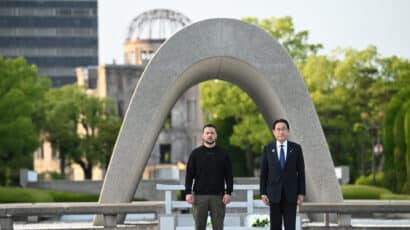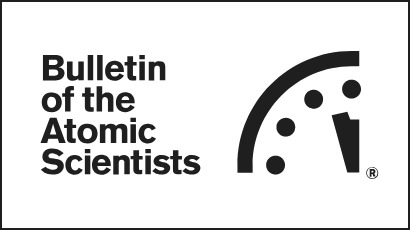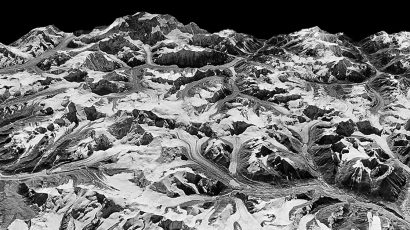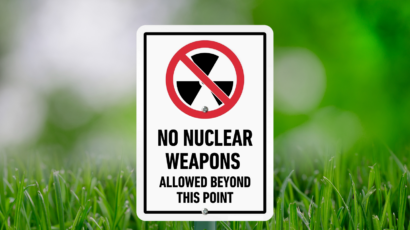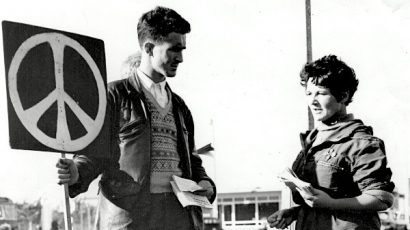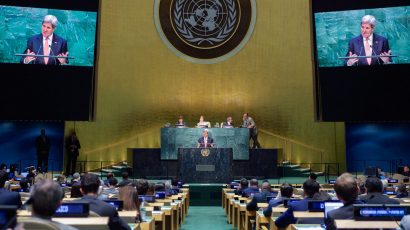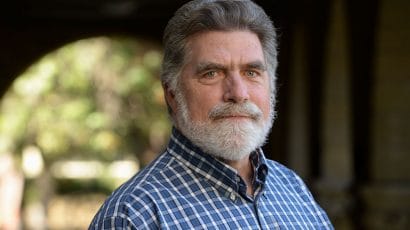Search results for
North Korea might not denuclearize, but the US Senate should
The United States would have more credibility as a critic of North Korea’s nuclear program if it joined denuclearization agreements in Africa, Central Asia, and the South Pacific.
The Black Sea: Center of the nuclear black market
The Black Sea region is one of the world's critical crossroads, a strategic intersection of east -- west and north -- south corridors that enable the free flow of people, ideas, and goods from Asia to Europe and from former Soviet territory to the Middle East and Africa. It is also the center of the world's nuclear black market.
Brussels steps up as a leader in nuclear and radiological security
With a cutting-edge project in Southeast Asia, the EU asserts a trailblazing role in fighting global CBRN threats
How fast are Himalaya’s glaciers melting? Look at Cold War spy satellite photos
Decades-old analog spy photos from the US Hexagon program were rendered into modern 3-D graphics, to see how quickly the ice is melting. Researchers found that the mountain’s glaciers are melting at double the rate since 2000 as during the period of 1976 to 2000, and that a warming climate is the culprit. At this rate, rising temperatures could melt two-thirds of Himalayan glaciers by 2100.
Is the spread of regional denuclearization dead? Or a path toward eventual disarmament?
Despite being an important step toward disarmament, no new zone free of nuclear weapons has entered into force since 2009—the longest stretch ever without a pact.
What the Campaign to Stop Killer Robots can learn from the antinuclear weapons movement
What today's campaigners against the battlefield use of A.I.-powered autonomous robots can learn from the successful antinuclear movements of yesteryear.
No, it is not time to ditch the NPT
It would be reckless to throw away the only treaty that commits the major nuclear powers to work toward disarmament. Rather than eroding the NPT, here’s how we can strengthen it.
Can we remain food secure amid climate change?
As we work to arrest global warming, we must also mitigate the food security problems it will cause.
The divided front negotiating with Iran
They may say they’re united, but the members of the P5+1 have divergent interests
It’s time to jettison Nuclear Posture Reviews
Since the end of the Cold War, there have been four Nuclear Posture Reviews (NPRs). Should there be a fifth? No. It’s time to move on. Despite their many virtues, these reviews are not delivering what the nation needs. Indeed, the entire policy and posture review architecture of which the NPR is a part needs … Continued
Five minutes is too close
A careful review of threats leads the Bulletin's Science and Security Board to conclude that the risk of civilization-threatening technological catastrophe remains high, and that the hands of the Doomsday Clock should therefore remain at five minutes to midnight.
2008 world nuclear industry status report: Global nuclear power
Last Thursday, in the midst of the world media's constant nuclear revival reportage, the International Atomic Energy Agency (IAEA) had an embarrassing announcement to make. While it has increased its projections for nuclear generation in 2030, nuclear's share of global electricity generation dropped another percentage point in 2007.
Improve the nuclear test monitoring system
To assure global coverage and a higher probability of detecting nuclear tests, if the international community must expand its monitoring system and put limits on radioactive releases from nuclear facilities
Revitalizing high-level nonproliferation and disarmament talks
Unproductive blame shifting has dominated the nuclear debate in recent years, frustrating progress and serving only the interests of those who are content to see no movement on nonproliferation and disarmament. Rekindling a spirit of common purpose on the nuclear agenda is an urgent task.
Despite the post-Cold War decline in public attention, the consequences of nuclear weapons proliferation and an indifferent international performance on nuclear disarmament remain potentially catastrophic.
What a Cold War crisis over Taiwan could tell us about China-Russia relations today
Today's Ukraine crisis has uncanny parallels to an often-overlooked Cold War conflict between China, the Soviet Union, and the West known as “The Taiwan Straits Crisis of 1958”—which some analysts call the first serious nuclear crisis.
Establishing the next president’s national security agenda: Part I
With the presidential primaries ending this week, it's time to focus on the general election and the key national security challenges that the next president will face. Over the next three columns, I will outline what national security issues I think the candidates should be debating.
Declaring a no-first-use nuclear policy would be exceedingly risky
With Russia and China advancing on their neighbors, now is not the time for a US promise never to launch a first nuclear strike.
Internationalizing the nuclear fuel cycle
The rising demand for energy, especially in Asia, has made it all but inevitable that a surge in the construction of new nuclear reactors will occur over the next 20 years. That will pose issues regarding the building of new uranium enrichment and reprocessing facilities or the expansion of existing facilities.1
How to better study—and then improve—today’s corrupted information environment
For the information environment to thrive, investments in data access, standardized measurements, and research tooling are needed.
